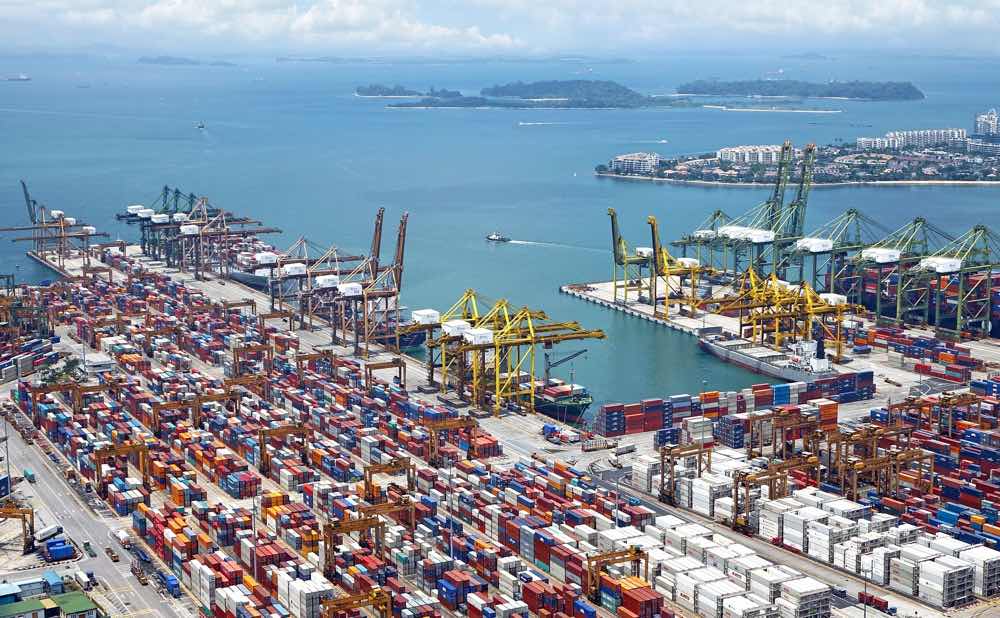Economic meltdowns hold important lessons for business consultants. Since the philosophies, frameworks, and insights developed by top firms contribute to the business practices which play a role in making the economic system unsustainable, a crisis signals the need for reflection. For instance, in the lead up to the 2008 Great Recession, McKinsey actively promoted mortgage securitization, alongside EY which was involved with Lehman Brothers’ accounting fraud allegations [pdf]. Since these firms also play a role in helping businesses overcome their outdated practices, a changing business environment represents a source of opportunity. Not coincidentally, the conspicuous rise of many consulting giants dates to the late 1970s and ‘80s, during the period of digitalisation and globalisation of Western economies.
Each crisis shines a light on the weaknesses in existing business practices. The 1973 Oil Crisis exposed the vulnerability of resource-intensive manufacturing. The 2008 meltdown highlighted harmful practices in the financial sector, such as credit default swaps and collateralized debt obligations. Now, the 2020 global pandemic teaches us that we need to review our beliefs about just-in-time logistics.
The rise of just-in-time logistics
Logistics has always been a key area of focus for consulting firms. The epitome of this commitment, still in use today, is the standardized 11-digit barcode system, which the National Association of Food Chains initiated in close collaboration with McKinsey in the early 1970s.
The importance of logistics for a firm’s success, and the benefits of the just-in-time conception, are perhaps best captured by the case study on vehicle-manufacturer Toyota. Following the Second World War, Japan aligned itself closely with the United States, which entailed the policy of open gates in economic terms. This arrangement left Japan’s automobile industry in dire straits, since they lagged in price-competitiveness behind their American counterparts, who could benefit from ginormous economies of scale that resulted from the large and growing domestic demand for cars during the post-war boom. Since the Japanese car market demanded the same variety as the American one, but was much smaller in size, Toyota had to find a way of compensating for its lack of cost competitiveness. The solution was the Toyota Production System (TPS), which revolutionised industrial logistics by popularizing its core functioning principle, just-in-time production. It is a pull-system of lean manufacturing, by which each step in the production process only makes just enough to meet current demand. For example, a petrochemical company would only ship the PVC resin to the windshield facility when it is ready to create windshields, which would only occur when the car is ready to assemble. This system drastically reduces the need for inventory, which boosts production efficiency in two major ways. Firstly, inventory needs to be stored and maintained, often at significant cost. Just-in-time production eliminates those costs. Secondly, cash tied up in inventory incurs an opportunity-cost. Just-in-time production frees up those funds which can then be invested elsewhere in the company.
Issues with just-in-time manufacturing
Just-in-time production quickly became a sensation and went on to become the world-wide norm across various industries. The system, which is optimised for perfectly smooth transitions between each link in the supply chain, collapsed conspicuously when global trade was disrupted by the pandemic. Paradoxically, amid a shortage of cars in 2021 caused by the just-in-time system, Toyota seems to be the only major car-manufacturer to maintain its regular production rates. Three major factors distinguish Toyota from its competitors:
- Japan’s small physical size allows for short domestic supply chains.
- Toyota has an intricate production levelling scheme, where they optimize for average daily demand regardless of short-term fluctuations.
- Realising that semi-conductors are a critical commodity that are not easily replaceable if supply-chains are disrupted, Toyota had a considerable stockpile.
Toyota has managed to succeed with just-in-time production by acknowledging its limitations, and adapting it to its specific circumstances. In contrast, many other industries have developed overly convoluted supply-chains in pursuit of maximum efficiency without maintaining any safe-guarding mechanisms in case of an unexpected event. For example, the supply chain of a mobile device involves tens of countries, 43 for an iPhone to be exact. Such complicated networks became paralysed during the pandemic, which has effected manufacturers to such an extent that Samsung was forced to postpone the rollout of its new model for the year.
Implications for consultancy
In the coming years, businesses across industries will need to re-evaluate their supply chains and logistics, keeping only the elements of just-in-time manufacturing which fit their specific situation. The weakness in the strategy of pursuing short-term efficiency gains by blindly subscribing to management creeds has been revealed. Although the Covid-19 pandemic was an extraordinary event, it has uncovered the pre-existing vulnerabilities in the system. Consultancy firms will have an important role to play in assisting companies to become more resilient to unexpected events, whether it be environmental impacts, political risk, a market meltdown, or another global pandemic.
Bence Borbély is a Hungarian first-year History and Politics student at the University of Cambridge whose professional fields of interest are management consultancy, public policy-making, politics and international relations.
Image: Pixabay
